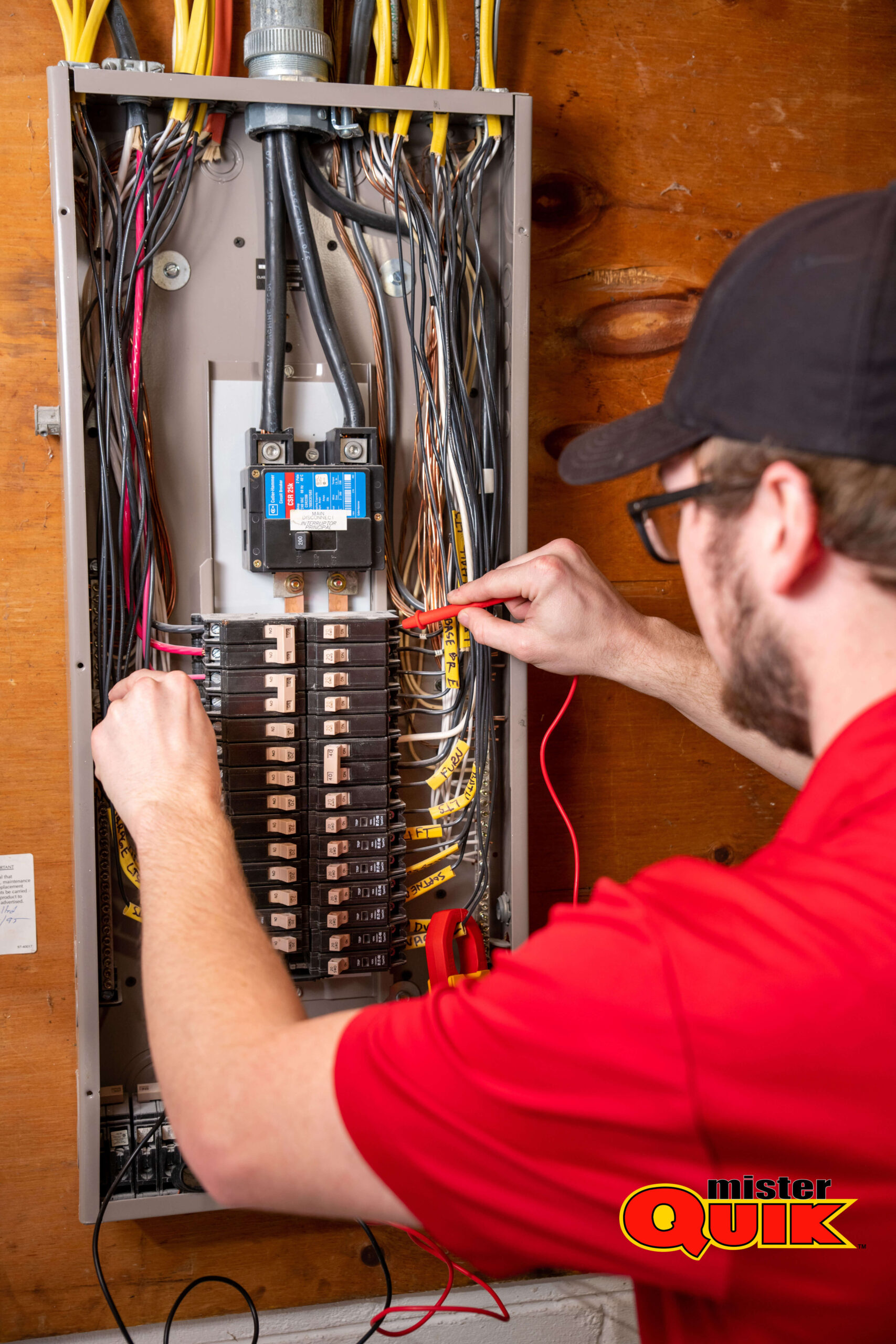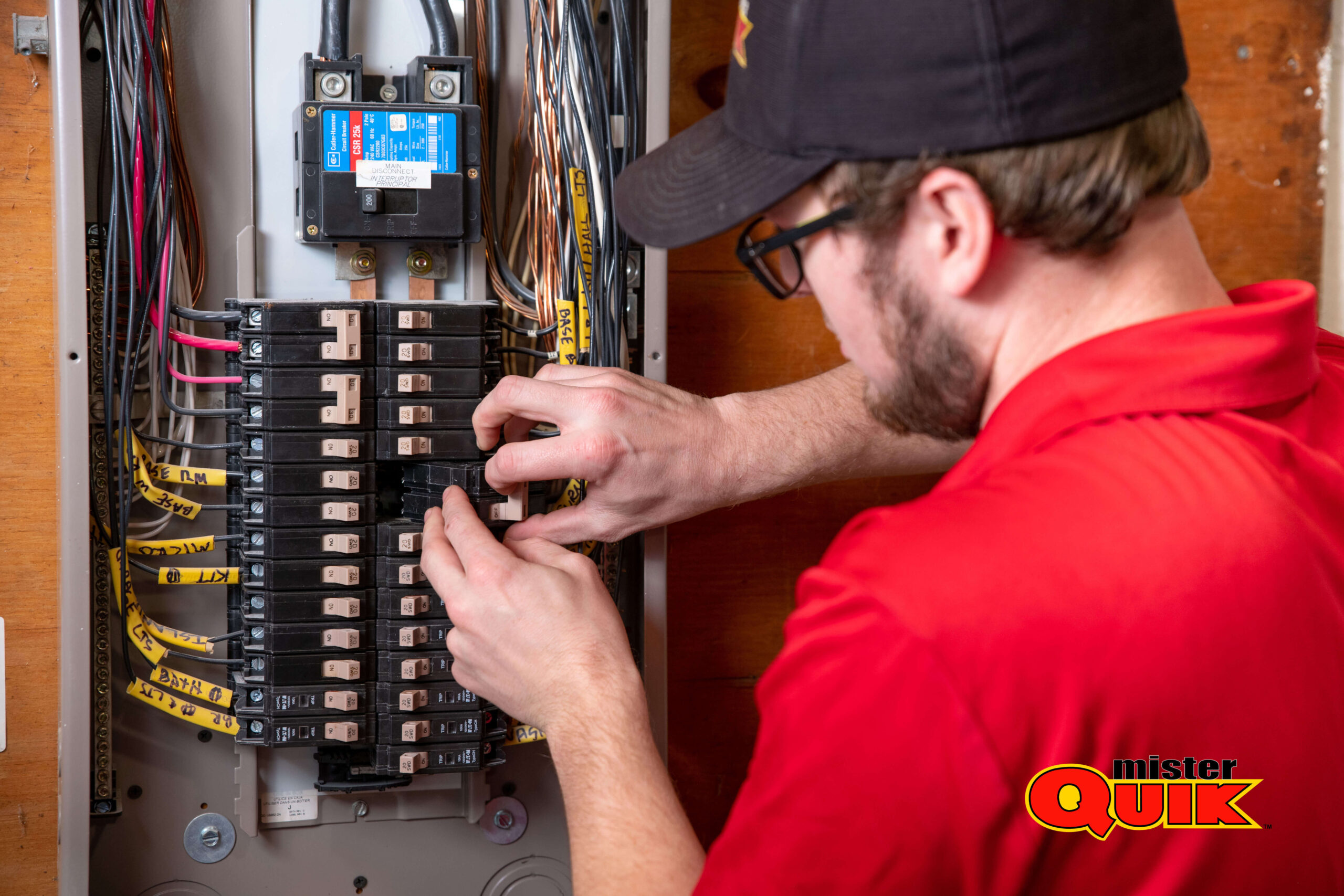Generators Near Me
Schedule on your own without making a call. Click the button below to get started!

Generators for Home
At Mister Quik Home Services in Carmel, we understand the importance of a reliable power source for your home. Here’s why our generators are the perfect solution:
- Continuous Power During Outages: Our generators ensure that your home remains powered even during unexpected outages, providing peace of mind and uninterrupted comfort for your family.
- Customized Solutions: We offer a range of generator options tailored to fit your specific needs and budget, ensuring you find the perfect match for your home.
- Professional Installation: Our team of experts handles every step of the installation process, from assessing your home’s electrical needs to seamlessly integrating the generator into your existing system.
- Maintenance Services: To keep your generator running smoothly, we provide regular maintenance services, including inspections and tune-ups, to detect and prevent any potential issues before they arise.
- Emergency Support: In the rare event of a generator malfunction, our dedicated support team is available around the clock to provide swift assistance and ensure minimal disruption to your home’s power supply.
- Fuel Options: We offer generators that run on various fuel sources, including natural gas, propane, and diesel, giving you flexibility and convenience in powering your home.
- Energy Efficiency: Our generators are designed to maximize fuel efficiency, helping you save on energy costs while reducing your environmental footprint.
With Mister Quik Home Services, you can trust that your home will always have reliable power, no matter the circumstances. Contact us today to learn more about our generator options and take the first step towards a worry-free power supply for your home.
Home Standby Generator
At Mister Quik Home Services in Carmel, we offer Home Standby Generators to ensure uninterrupted power supply for your home. Here’s what you need to know about this essential system:
A Home Standby Generator is a backup power system that automatically turns on during electrical outages. It's permanently installed outside your home and connected to your electrical system.
When a power outage occurs, the automatic transfer switch detects the loss of utility power and signals the generator to start. Within seconds, the generator begins supplying power to your home, ensuring that essential appliances and systems continue to function seamlessly.
Home Standby Generators feature advanced monitoring systems that continuously check the utility power supply. If an outage is detected, the generator starts automatically, providing you with peace of mind knowing your home is always protected.
These generators typically run on natural gas or propane, ensuring a steady fuel supply during prolonged outages. This eliminates the need for refueling, making them a convenient and reliable backup power solution.
Home Standby Generators come in various sizes to accommodate different homes and power needs. Our experts can assess your requirements and recommend the right size generator for your home. Home Standby Generators come in various sizes to accommodate different homes and power needs. Our experts can assess your requirements and recommend the right size generator for your home.
The appropriate size of a generator to power a home depends on factors such as the square footage of the house, the number of appliances and devices requiring power, and the power requirements of essential systems like heating and cooling. Generally, a typical residential home might require a generator with a capacity ranging from 5,000 to 20,000 watts to cover essential needs during a power outage. However, it’s essential to calculate the specific power needs of the home accurately to ensure the generator chosen can adequately supply power without overloading. Consulting with a professional electrician or generator expert can help determine the optimal size for a particular home.
When considering a generator for home use, it’s essential to prioritize reliability, fuel efficiency, and power output to meet your household’s needs during emergencies or power outages. Portable generators offer versatility and convenience, suitable for occasional use and smaller power requirements, while standby generators provide seamless, automatic backup power for larger homes or essential appliances. Consider factors such as fuel type, runtime, noise level, and safety features to determine the best generator for your specific situation, ensuring peace of mind and uninterrupted power when it’s needed most.
The size of the generator needed to power a refrigerator and freezer depends on their combined wattage, typically ranging from 800 to 2500 watts for residential units. To accurately determine the appropriate size, identify the starting wattage (which is higher due to compressor motors) and the continuous running wattage of both appliances, then choose a generator with a capacity slightly higher than the total. This ensures smooth operation without overloading the generator. Additionally, consider other appliances you may want to power simultaneously to determine the overall power requirements.
The cost of a generator for a 2000 sq ft house can vary based on factors such as power capacity, brand, and features. Generators come in different sizes and types, ranging from portable to standby models. Generally, larger houses may require higher-capacity generators to meet their power needs during outages. It’s advisable to consider consulting with a professional to assess your specific requirements and budget before making a purchase decision. Additionally, ongoing maintenance and fuel costs should be factored into the overall expense of owning a generator.
Types Of Generator
Generators are devices that convert mechanical energy into electrical energy. They are used as a backup power source when the main electrical grid fails or is unavailable. There are many different types of generators, each with its advantages and disadvantages.
Here are some of the most common types of generators:


Portable Generators are small generators that can be easily transported and used for a variety of purposes. They are powered by gasoline, diesel, or propane and are typically used to provide temporary power for homes, businesses, or campsites. Portable generators are relatively inexpensive, but they can be noisy and produce a lot of emissions.
Industrial Generators are the largest and most powerful type of generator. They are used to provide power for factories, data centers, and other large facilities. Industrial generators can be powered by a variety of fuels, including diesel, natural gas, and even wind or solar power.
Inverter Generators are a type of portable generator that produces cleaner power than traditional generators. This is because they use an inverter to convert the DC output of the generator into AC output. Inverter generators are ideal for powering sensitive electronics, such as computers and televisions.
Solar Generators are generators that use solar panels to convert sunlight into electricity. They are a clean and renewable source of power, but they are also the most expensive type of generator. Solar generators are typically used in remote locations where there is no access to the grid, or for people who want to reduce their reliance on fossil fuels.
Benefits Of Installing A Generator
Installing a generator offers a number of advantages for your home, both in terms of comfort and security.
Here are some of the key benefits:
The most common reason for installing a generator is to have backup power in case of outages. This can be essential during severe weather events, when power lines are more likely to be damaged. With a generator, you can keep your refrigerator and freezer running, maintain comfortable temperatures with your HVAC system, and ensure you have light and basic appliances functioning. This can be especially important for families with young children or elderly relatives who may be more vulnerable during power outages.
Power outages can lead to burst pipes in freezing weather or food spoilage in your fridge. A generator can help prevent these costly problems. Imagine waking up to a frigid house in the winter only to discover that your pipes have burst due to the lack of heat. A generator can prevent this scenario, saving you from the hassle and expense of repairing burst pipes and replacing spoiled food.
Generators can be lifesavers for those who rely on medical equipment that requires electricity. Additionally, well-lit homes during outages reduce the risk of tripping and injuries. People who rely on medical equipment, such as CPAP machines or nebulizers, can face serious health risks if the power goes out. A generator can provide peace of mind knowing that essential medical equipment will continue to function during a power outage. Furthermore, power outages can create a dangerous situation, especially for those with limited mobility. A generator can help to keep your home illuminated, reducing the risk of tripping and other accidents.
How Big of a Generator Do I Need?
When choosing a generator, it’s essential to select the right size to ensure it can adequately power your home or appliances. Here’s how to determine how big of a generator you need:
- Assess Your Power Needs: Start by making a list of the essential appliances and systems you want to power during an outage. Include items like refrigerators, lights, heating or cooling systems, and medical devices.
- Calculate Total Wattage: Determine the total wattage required to power all the items on your list simultaneously. You can find the wattage ratings on the appliances’ labels or in the owner’s manuals. Add up these wattages to get the total power requirement.
- Consider Starting vs. Running Wattage: Some appliances, like refrigerators and air conditioners, require more power to start up (starting wattage) than they do to run continuously (running wattage). Make sure to account for both starting and running wattages when calculating your power needs.
- Factor in Additional Power Needs: In addition to essential appliances, consider any additional power needs, such as charging electronic devices or running power tools. It’s better to have a generator with a slightly higher capacity to accommodate unexpected power demands.
- Consult with Experts: Our team at Mister Quik Home Services can help you determine the right size generator for your specific needs. We’ll consider factors like your home’s size, location, and typical power usage to recommend the most suitable generator for you.
How Do Generators Work?
Understanding the Mechanics of Generators: Insights from Mister Quik Home Services
Generators play a crucial role in providing backup power during outages, but how do they actually work? Here’s a breakdown of how generators operate and why they’re essential:
Generators work on the principle of electromagnetic induction. They convert mechanical energy into electrical energy, producing electricity through the movement of conductors within a magnetic field.
A generator consists of two main components: a rotor (or armature) and a stator. The rotor is a rotating shaft with conductors, while the stator is a stationary component with coils of wire. As the rotor spins within the magnetic field created by the stator, it induces an electric current in the coils of wire.
Most generators are powered by engines that run on gasoline, diesel, natural gas, or propane. The engine provides the mechanical energy needed to turn the rotor and generate electricity.
Generators are equipped with voltage regulators to ensure a stable output of electricity. These regulators adjust the generator's speed and excitation current to maintain a constant voltage level, regardless of changes in load or engine speed.
In standby generator systems, automatic transfer switches (ATS) play a vital role. ATS monitors the utility power supply and automatically switches the generator on during outages, ensuring uninterrupted power to your home or business.
Understanding how generators work and their importance can help you make informed decisions when selecting a generator for your home or business. At Mister Quik Home Services in Carmel, we provide expert guidance and reliable generator solutions to meet your needs. Contact us today to learn more about our generator services and ensure uninterrupted power supply when you need it most.
- Calculate total wattage needed for essential appliances.
- Consider starting vs. running wattage for accurate estimation.
- Choose a generator with slightly higher capacity than calculated wattage.
- Consult with experts at Mister Quik Home Services for personalized guidance.
- Determine preferred fuel source: gasoline, propane, diesel, etc.
- Consider fuel availability and convenience during prolonged outages.
- Hire professionals for professional installation to ensure seamless integration.
- Verify all connections and wiring for safety and optimal performance
- Schedule routine maintenance services to detect and prevent potential issues.
- Monitor fuel levels and generator status regularly, especially during extended periods of non-use.









